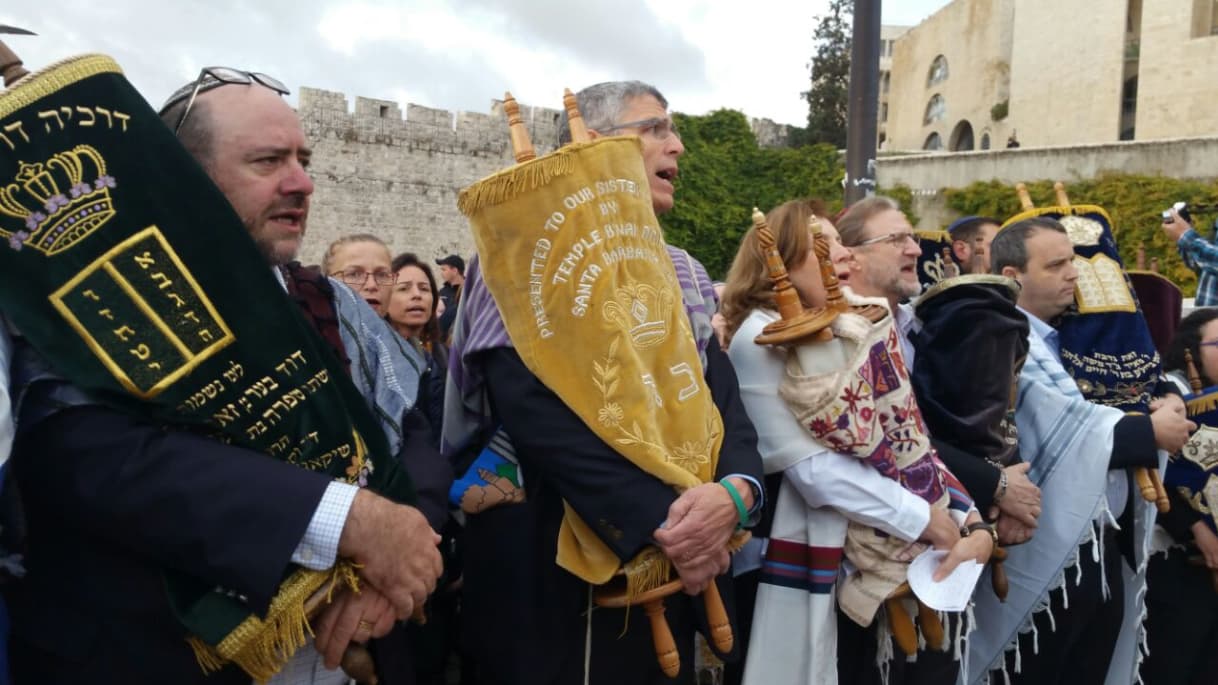
Maj. (Res) Dan Feferman, October 14, 2018
With permission, read full article on JPPI.
http://jppi.org.il/new/en/article/risingstreams/toc/executivesummary/
Numbers
As many as 12-13 percent of Israeli Jews (~800,000) self-identify as Reform or Conservative in recent surveys; there are 125 total Reform or Conservative communities throughout Israel, 56 of them with permanent synagogues; there are 280 rabbis affiliated with the movements nationally, 85 of them working in communal capacities, and 8-10 new rabbis are ordained in Israel each year by the movements’ seminaries. Both streams have small but active youth movements, with ~1800 members combined in 32 branches, pre-military mechinot programs and 3 kibbutzim. There is significant growth from just two and even one decade ago in all of these parameters.
Lifecycle events
The movements’ greatest success has been in conducting alternative Jewish lifecycle events for secular and traditional Israelis. Each year, the movements conduct around 1000 weddings, over 3000 bar/bat mitzvah ceremonies, around 400 conversions, and close to 1000 additional events such as funerals and circumcisions.
Understanding the movements in the Israeli context
The movements report only 12,000 registered adult members combined. This stands in stark contrast to the above figures, especially when approached from an American context. We suggest this is due to a number of elements:
- Synagogues and organizational membership play a minimal role in Israel, as Israelis rarely “belong” to synagogues (rather pay-per-service) or movements and much of what the organized Jewish community provides abroad is provided in Israel by the state, schools, or public space.
- Most “Hiloni” Israelis are not really secular or detached from Judaism and largely engage in Jewish practice, holiday observance of some sort, and life cycle events. This connects to a general shift to post-materialist societies in the West, which has inspired some renewed interest in spirituality, religious practice, culture, and tradition.
- However, those secular Israelis are also turned off by Orthodox Judaism, more specifically the Rabbinate and the religious establishment, and are increasingly exposed to non-Orthodox alternatives through travel abroad and interaction with local communities, interactions with Diaspora Jews in Israel and attendance of Reform or Conservative bar/bat mitzvahs or weddings (1/2 of secular, 1/3 of traditional, 1/5 of Dati, and even 1/10 of Haredi Israelis have attended such events).
Paradigm shift
This amounts to a significant shift in the reigning paradigm for understanding the normative religious identity and practice for secular and traditional Israelis. Historically, most Israelis would say, “the synagogue I do not attend is Orthodox,” meaning that they viewed Orthodox Jewish practice as the only authentic form of Judaism, although they were not observant. Today, a significant and growing number of secular and traditional Israelis would also say, “they do not attend Reform and Conservative synagogues”. This means that Reform and Conservative Jewish practice are now seen as authentic and preferable by these largely secular and traditional Israelis, who engage with such Jewish practice primarily for lifecycle events and holidays.
Although this has not translated into Reform and Conservative Movements with hundreds of thousands of dues-paying committed followers, it could mean that in the near future, as many as 20-30 percent of secular and traditional Israelis could similarly view Reform and Conservative Judaism as authentic and preferable forms of Jewish practice.
Public attitude
Overall, public attitudes toward the Reform and Conservative Movements in particular and pluralistic expressions of Judaism in general are positive. Sympathy is highest among secular Israelis on the political left and center, turning to mixed feelings or neutrality among traditional Israelis on the center-right and hostility among the Orthodox and Haredi on the political right. A majority of Israeli Jews favor granting recognition and equal rights to the movements on par with the Orthodox. That said, the hostility from the Orthodox and ultra-Orthodox is significantly more intense and active than is the level of support from the secular and traditional public.
